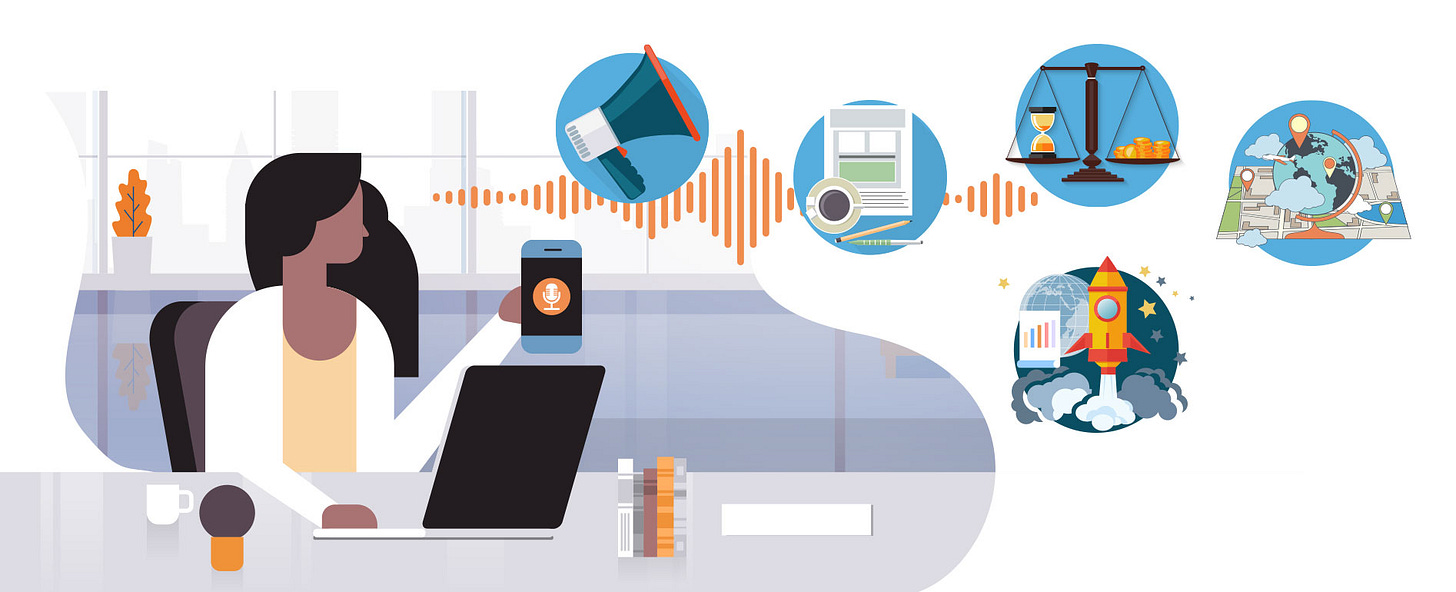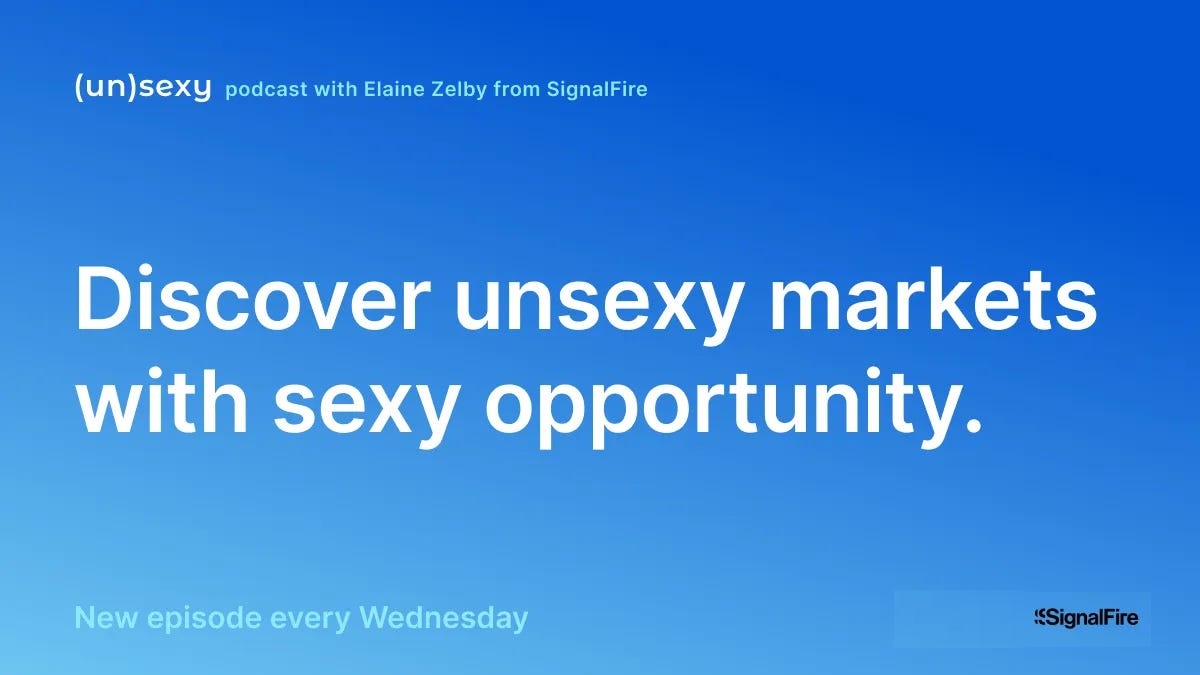Happy Sunday and a very warm welcome to all the new subscribers! I’m thrilled and honored to have you as readers and truly appreciate your thoughts and feedback 🙏. Each edition of 3 Things will contain a dive into 3 rabbit holes I’ve found myself going down recently and associated business opportunities. Subscribe to get each week’s edition straight to your inbox and if you enjoy it, please share (I suck at self-promotion so can use your help)! This past week I’ve been thinking a lot about:
Plaid for Therapists
Curai for VAs
Papa but Moms
1. Plaid for Therapists
The past few years have seen tremendous gains when it comes to destigmatizing mental health. Whether it’s celebrities and influencers speaking openly about their struggles with mental health or the mainstream media normalizing therapy, it’s becoming a major topic of conversation among most demographics. That said, it is still So. Damn. Hard. to actually find a provider who is in network that is taking new patients, currently accepts insurance, and has experience with the issues or conditions you’re looking to work through. Even for someone who has mental health benefits as a part of their plan, navigating access is a nightmare — you might start on your plan portal, try to find the mental health section, get sent to a totally different site/user experience, and then get shown practitioners who either aren’t accepting new patients or are in another city and don’t offer telemedicine visits. To serve the growing demand, VCs are pouring money into mental health startups who are clamoring for data to build their provider networks and serve the growing demand across all types of people.
In the fintech world, Plaid has become one of the darlings and has raised over $700m and created a multi-billion dollar business by painstakingly building out API connectors to thousands of banks and financial institutions. Everytime you get that popup modal that asks you to select your bank and provide your credentials to grant access, that is Plaid under the hood providing the connections. They saw the rise of fintech startups who all needed to access customer banking data and built the pipes to be a one-stop shop to serve all customers. Today, we are starting to see a similar explosion of mental-health focused companies who all need access to data on therapists, psychiatrists, LCSWs (licensed clinical social worker), counselors, and other mental health professionals. There are startups like Medallion and CertifyOS who help with the credentialing and licensing of provider networks but I think another opportunity is to be the holistic data provider for mental health that provides real-time data credentials, availability, location, conditions treated, education/work history, reviews, and any other relevant data. Integrate with the credentialing services, scheduling software, state licensing boards, National Practitioner Data Bank, review sites, and more to provide a comprehensive database of providers. Scrape websites to add specialties and information on where the provider has worked/currently works. Package this up as an API for mental health companies (or digital health who offers mental/behavioral health as a component) and eventually you could also sell to payors and health systems.
2. Curai for VAs
The use of virtual assistants (VAs) as a cheaper and more flexible form of executive assistant or secretary has been around since the 1990s with the adoption of the internet and became popularized in 2007 after the wildly successful book The 4-Hour Workweek by Tim Ferriss showcased his use of VAs to offload lower level work and prioritize the important and urgent things that let him grow his business and run it with very little time and overhead. Today, companies, agencies, and individuals all leverage VAs to outsource tasks like email and calendar management, social media, project management, expense tracking, data entry, research, travel booking, event planning, and more. While cheaper than a local assistant, you are still paying on average $18-35/hr and relying on a human which means you’re SOL when they are sick, on vacation, or just not reliable.
Curai Health is a company that provides text-based on-demand primary care services so you may be asking yourself, “where exactly are you going with this?” But, if you stick with me for just a minute I think you’ll see the analogy. There are a lot of companies who offer similar value propositions, but what makes Curai particularly interesting is that they keep costs low and quality high by having a escalating care delivery structure where they start with a text-based chatbot, then escalate to off-shore physicians or NPs, then escalate to US-based physicians or NPs as needed. Following the Pareto Principle, the majority of things can actually be handled either by AI or a lower cost practitioner and only serious or complicated conditions need to be handled by an American doctor or nurse. In the VA world, the cost of hiring a local assistant is a barrier to many who seek lower-cost alternatives through onshore and offshore marketplaces like Zirtual, Belay, or Upwork. I think the opportunity is to follow a similar escalating rules engine based off of category and complexity of the request. For simple things like data entry, research, or scheduling a meeting or appointment, an AI should be able to handle the tasks. For slightly more complex things like booking travel, planning an offsite for your team, or handling social media, an offshore VA (with AI-powered tools) can support. For bespoke, complex, or sensitive tasks, a US-based Premium VA would be in charge. You could offer tiered pricing based on credits where each type of VA has different credits associated per hour. Let people choose a monthly package and add additional credits anytime.
3. Papa but Moms
As the Baby Boomers age, we are facing a geriatric population at the scale that we have never witnessed before. At the same time we are facing the largest healthcare labor shortages in history. When you talk to anyone in healthcare, one of the largest trends that is on everyone’s mind is home health; essentially how can we shift the point of care from hospital and clinic to the point of the patient. It’s truly one of the only areas of healthcare where the payors, providers, and patients are all aligned — they’d all prefer patients to receive care at home. It more convenient for patients, more effective/efficient for providers, and cheaper for payors. The accessibility of smartphones, tablets, and wearables combined with new billing codes for telemedicine and emphasis being placed on aging in place and home care means there are tons of opportunities for startups to provide value and help accelerate this shift.
We’ve seen a ton of remote patient monitoring companies, home medical equipment delivery companies, drug adherence startups, as well as care delivery and labor marketplaces. One such labor marketplace is Papa which started off by pairing college students with seniors to act as companions and was affectionately known as “grandkids on demand”. Health plans and employers enroll their members and Papa supplies companions to help with loneliness as well as everyday tasks and transportation which helps improve health outcomes, reduce costs, and increase patient satisfaction of their insurance plan. They’ve raised over $200m, are valued at over $1B, and currently serve over 70 health plans. While they are tapping into an interesting supply, in my opinion, stay-at-home moms are one of the most untapped potential labor pools on the planet. You could leverage this population to provide not only companionship to seniors in their community but to also do things like pick up prescriptions, help with groceries and meal prep for special diets, take vitals, help use wearables and tablets for telemedicine visits or RPM, and do other tasks that don’t require a licensed practitioner. It would give local moms the flexibility of schedule while also contributing to their community and would provide a (wildly generalizing here) caring, empathetic, and reliable workforce who are used to being caregivers. I’d follow a similar monetization model to Papa and start with a few specific geos and continue to expand from there. There are so many mom Facebook and Whatsapp groups and things tend to spread like wildfire among this population so supply acquisition should be relatively straightforward. [sidenote: I REALLY want to see this built and have lots of additional thoughts so if anyone is interested, shoot me a note!]
That’s all for today! If you have thoughts, comments, or want to get in touch, find me on Twitter at @ezelby and if you enjoyed this, please subscribe and share with a friend or two!
~ Elaine
And in case you like podcasts…
From scrap metal to timber, estate planning to freight pooling, the new (un)sexy podcast is a meandering exploration of just how sexy unsexy industries can be.
Join us weekly as we uncover stories of niche and esoteric markets, understanding their history and looking at the future through the eyes of the pioneering entrepreneurs willing to bring technology and exponential improvements to these often overlooked spaces.
Listen now on Spotify, Apple, Google, or wherever you listen to podcasts.







For #1, I'd check out Ribbon Health - https://www.ribbonhealth.com/products
Very cool API first digital health company that is the market leader in provider data as a service (not limited to mental health)